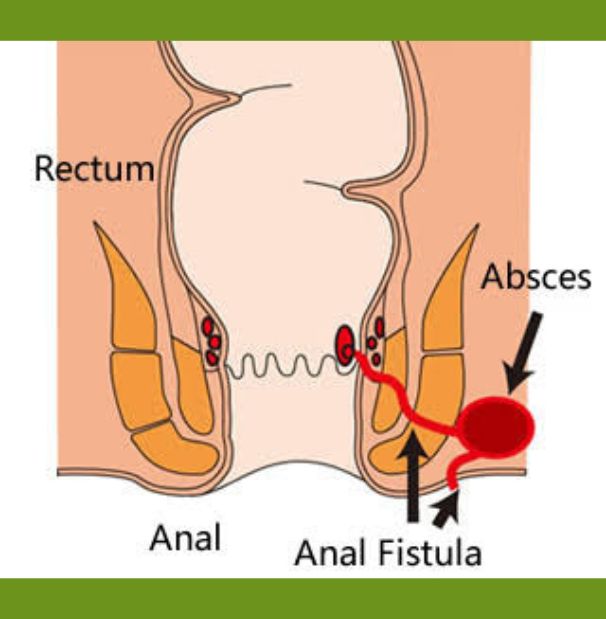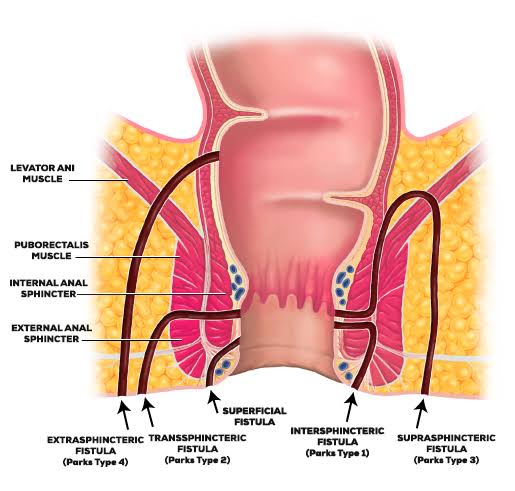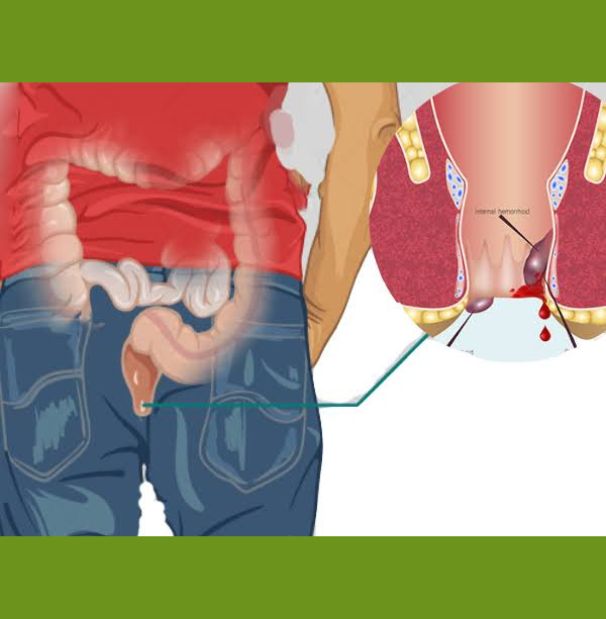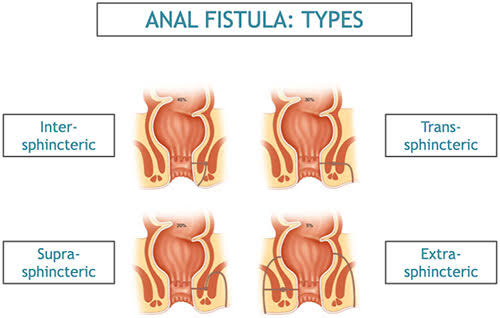Anal Fistula
A fistula-in-ano is a hollow tract lined with granulation tissue connecting a primary opening inside the anal canal to a secondary opening in the perianal skin. Secondary tracts may be multiple and from the same primary opening.
Frequency:-
The male-to-female ratio is 1.8:1.
Causes of ano-rectal fistula include the following:
1.Anorectal abscess (most common cause).
2.Piles or hemorrhoids.
3.Anal fissures.
4.Surgery for piles or fissures usually gives rise to fistula in future.
5.Constipation.
6.A healed sore in the rectal area
7.Inflammatory bowel disease
8.Diverticulitis
9.Previous radiation therapy for prostate or rectal cancer
10.Tuberculosis
11.Steroid therapy
12.trauma (especially obstetric - after traumatic delivery)
13.Patients who are immunocompromised for any reason.
The Parks classification system defines 4 types of anal fistula:-
1.Inter-sphincteric
2.Trans-sphincteric
3.Supra-sphincteric
4.Extra-sphincteric
Signs and Symptoms:-
Patients often provide a reliable history of previous pain, swelling, itching, boils, abscess and pus discharge from ano-rectal area. Perianal discharge,
Pain,
Swelling,
Bleeding,
Diarrhea,
Skin excoriation,
External opening


Lab Investigations in Anal Fistula
Fistulography.
Endorectal/endoanal ultrasound.
MRI.
CT scan.
A barium enema/small bowel series to rule out inflammatory bowel disease.
Homeopathic Treatment of Anal Fistula:-
The patients of fistula are usually advised surgery for their problem. There are several operations like fistulotomy, Lay-open of fistula-in-ano, Cutting section, Fibrin glue injection, Fistula plug, Endorectal advancement flap, Anal Fistula Plug.
But this is just a temporary solution as invariably the fistulas recur. Also a lot of complications can occur due to surgery like urinary retention, bleeding, thrombosed hemorrhoids, fecal impaction, incontinence of stool, anal stenosis because of fibrosis, delayed wound healing.
Invariably patients come to a homeopath after many years of suffering and sometimes after going through multiple surgeries.
How homeopathic medicine works?
1.It will first work to control the infection in the area thereby preventing attacks of the abscess formation.
2.Later, the remedies will start new tissue development to close down the tract.
3.When the process of redeposit is complete the opening closes down and the fistula is cured permanently.
4.Completely painless.
5.No painful or shameful dressing.
6.Also prevent recurrence in future.
This is a prolonged process and the time required varies from person to person, depending on the length and depth of the tract. A fistula usually takes almost one year and sometime even more to completely heal. Hence patients should have a lot of patience while on homeopathic treatment in order to achieve a complete and permanent cure.


